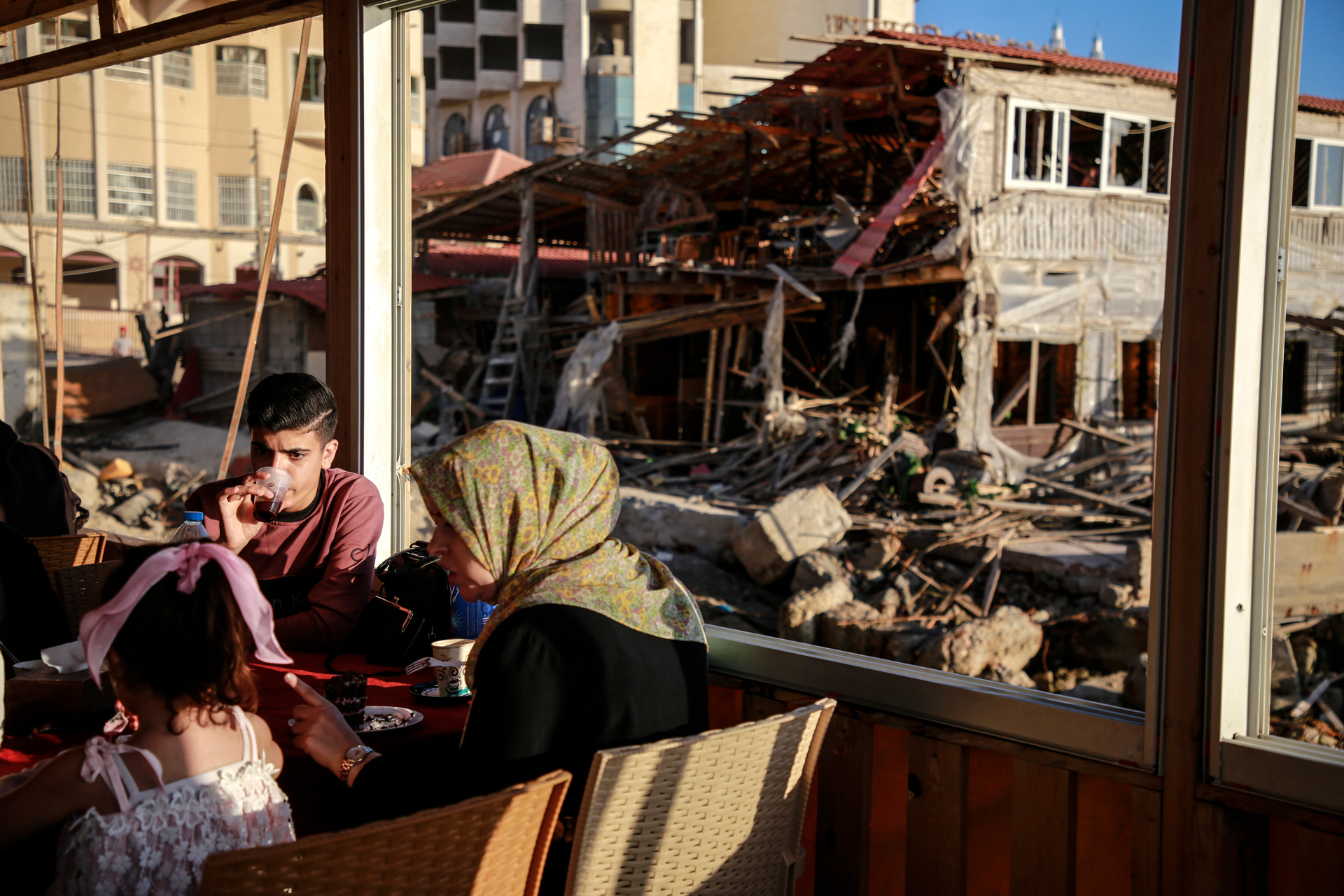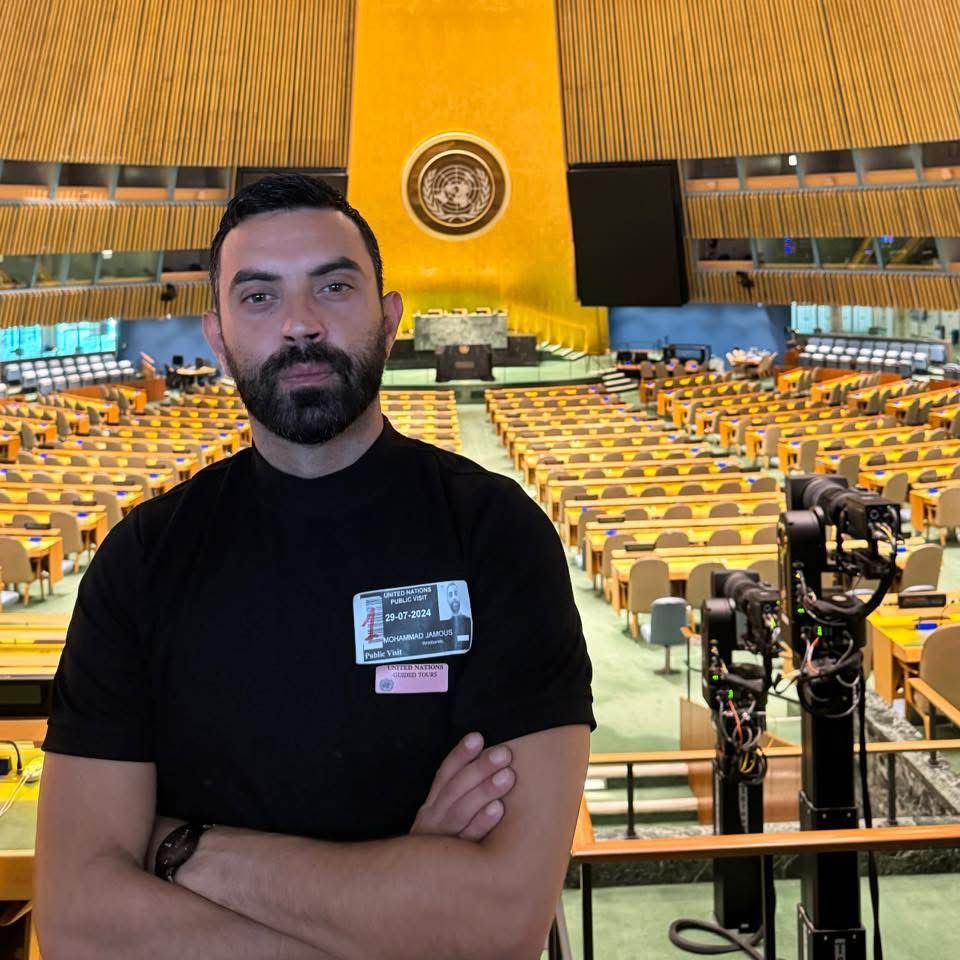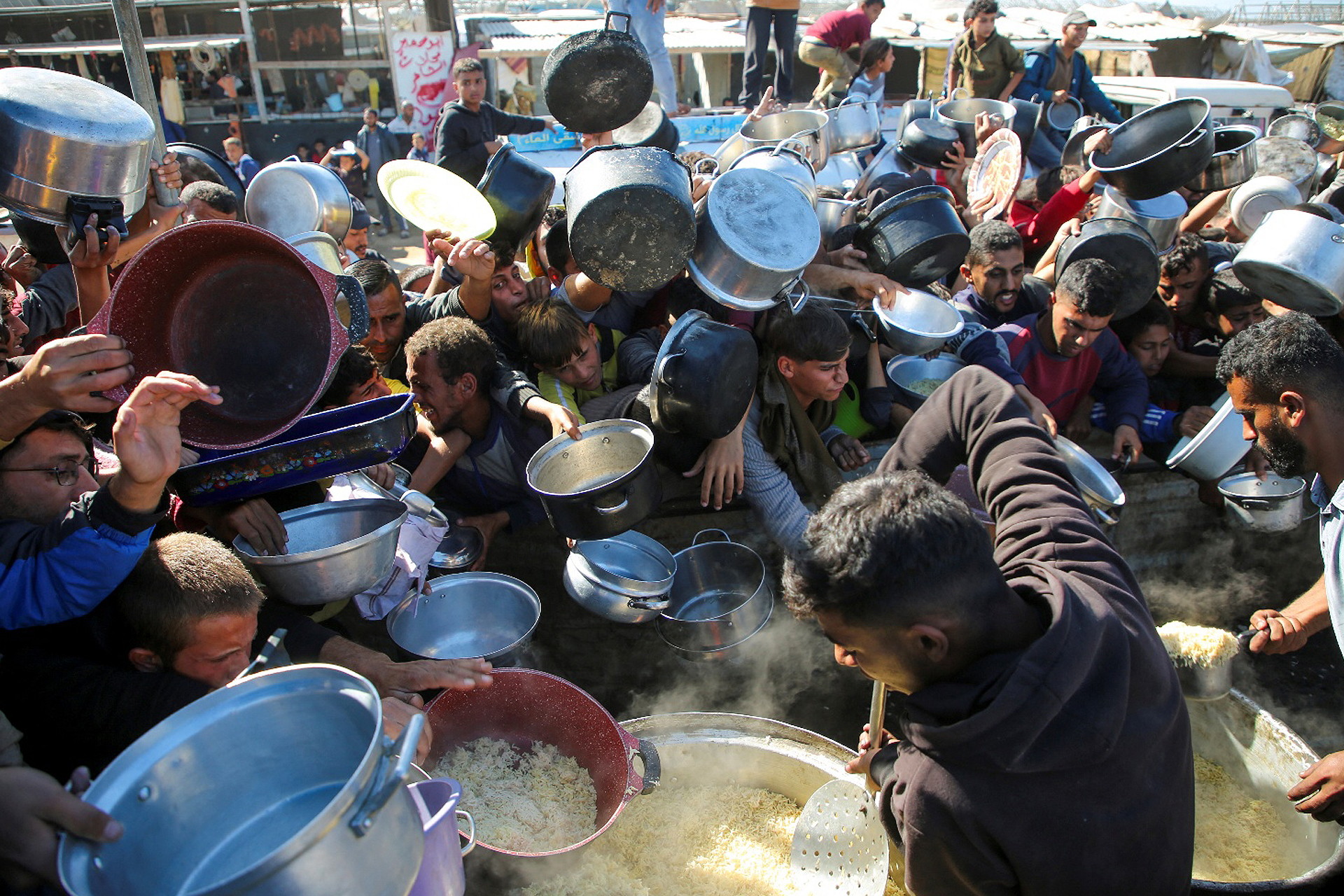I am a Palestinian. I am also a husband and a father of four—or, at least, I used to be.
On October 15, 2023, just eight days after Hamas launched its catastrophic October 7 attack on Israel, an Israeli airstrike obliterated my home in Gaza. My wife, Heba, and our two sons, Hmaid and Abdulrahman, were killed instantly. I survived with my two remaining children, Abdullah and Sham. I carried them through an agonizing journey from the rubble of Gaza to a hospital room in Abu Dhabi and finally to the uncertainty of exile in the United States. I lost everything: my family, my house, my work, my country, my future.
So when I see Hamas, the very architects of this disaster, proclaiming unity with the people of Gaza, it is not just offensive. It is obscene.
The language of the video itself gave the game away. “We are from you, and you are from us.” But the pronouns “we” and “you” were still separated—not blended, not merged as a single “we.” The message betrayed the reality: Hamas sees itself not as part of the people but as apart from them. It rules. It commands. It sacrifices others—not itself.
And now, months into a war that has turned Gaza into a graveyard and a starvation camp, Hamas finally speaks, not to apologize, not to admit failure, but to pretend closeness to a population it has kept in silence, darkness, and blood. It is too late.
The sharp, bitter responses to that video came from every corner of the Gaza Strip. Social media brimmed with posts calling Hamas out for its deceit, arrogance, and betrayal. One writer noted, “even your language exposes your separation from us.” Another called Hamas’s appeal “the oldest lie in history.” And indeed it is. It is a clear example of the lie that those who wield power in darkness and fear can one day put on the mask of kinship and speak as though they were one with the people.
But Hamas was never one with us Gazans.
For years, it claimed to be the resistance, but it resisted accountability, transparency, and decency. It claimed to be the voice of the people, but it silenced every dissenting voice in Gaza. It claimed to protect us, but it dug its tunnels under our homes, fired rockets from our schools, and invited destruction upon our heads. Then, when the inevitable fire rained down, it vanished. Its leaders fled. Its commanders buried themselves underground. And we, the civilians, were left to die.
Some try to justify Hamas’s actions as a necessary evil or a response to occupation. I am tired of these intellectual gymnastics. Yes, Gazans live under brutal Israeli siege and military domination. Yes, the suffering of Palestinians is rooted in decades of displacement and injustice. But Hamas’s decision to drag Gaza into war on October 7 was not an act of resistance. It was an act of nihilism. It was planned not for liberation but for spectacle—and the people of Gaza paid the price.
We paid in children’s limbs. We paid in mass graves. We paid in famine and disease. And we are still paying.
The Gaza death toll, according to the Hamas-run health ministry, has surpassed 60,000. Nearly 90 percent of the population is displaced. Famine looms. Aid is frozen. Families are eating grass. And Hamas thinks now is the time for a reconciliation message?
No. There can be no reconciliation without responsibility. There can be no “we” that includes Hamas and Gazan civilians unless Hamas comes forward, names its crimes, asks for forgiveness, and steps aside.
But Hamas will not do that. It does not believe it has erred. It sees our dead as its currency. It has long ceased to be a movement of liberation and has become a cult of survival—for itself.
In exile, I am rebuilding what remains of my life. I carry my grief like a second skin. Every night I replay the moment I lost my wife and sons. Every morning I wake up not knowing what future awaits my two surviving children in a country that still does not know if it will accept us.
Hamas did this to me. To us.
So here is what I tell Hamas: You, Hamas, are not from us, the people of Gaza. And we are not from you.
You left us to burn. You mocked our suffering. You stole our voice. You hijacked our cause. And now, as the smoke clears over a destroyed Gaza, you dare to speak in our name?
No. We reject your words, your war, and your claim to represent us. The only honest sentence in that deleted video was the grammatical mistake: “We” and “you” are not one.
History will remember that. So will I.
And may God forgive us—not for opposing you but for ever believing you were with us.
The opinions expressed in Realign For Palestine publications are those of the individual authors and do not necessarily represent the views of Realign for Palestine, the Atlantic Council, their staffs, or their supporters.






.JPG)


